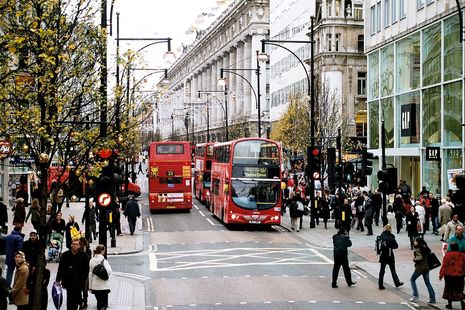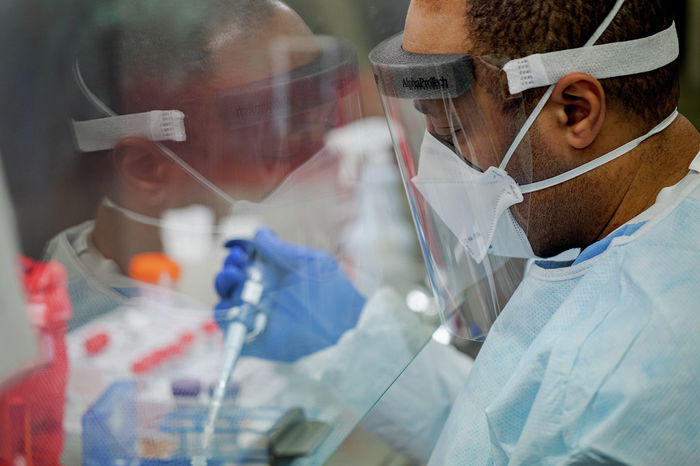There is no economic dilemma in suppressing the spread of COVID19
Tiffany Tsoi argues that a false dichotomy between economics and epidemiology has been projected and that saving people’s lives is not at odds with ‘saving’ the economy.

Recently, Boris Johnson unveiled his conditional exit strategy for the UK to widespread confusion. The British Prime Minister is attempting what appears to be an impossible feat- gradually reopen the economy, whilst keeping the pandemic at bay. Across the Atlantic, Donald Trump voiced the fears of many when he said “We cannot let the cure be worse than the problem”. His endorsement of the anti-lockdown protests which have flared up in states across America has been rightfully criticised, but reflects a bleak line of reasoning many have begun to espouse- that we are at a crossroads when it comes to choosing to save the economy or save lives. It is this very logic that has caused people around the world to call for an end to lockdown.
In reality, this is a false dilemma. The argument that social distancing restrictions must be lifted rests upon the fallacious reasoning that some form of economic normalcy could be resurrected upon doing so, like flipping a switch. But even countries without stringent lockdown measures have observed unprecedented economic disruption. A survey conducted in April pointed to Japan as the largest and most advanced economy least affected by the coronavirus. Yet its service sector, less vulnerable to drops in foreign demand than the manufacturing sector, recorded the sharpest slowdown in March that it had seen, even relative to the 2011 earthquake and tsunami. No restrictions had been imposed beyond the shutdown of schools at the time.
"The interests of economists and epidemiologists should be one and the same - to end the coronavirus pandemic as soon as possible."
Basic economics teaches us that the biggest component of GDP is consumer spending. As a pandemic rages on outside, it is difficult to imagine why those with the means to work from home and practice self-isolation wouldn’t keep doing so. A prerequisite for consumer spending is confidence, something virtually absent in a time like this when uncertainty is ubiquitous. Indeed, reopening the economy would force those financially desperate to return to work, causing economic output to increase marginally. But this is a grim scenario, as the gulfs of inequality already exacerbated by the coronavirus will be pushed further apart.
Not only would prematurely easing lockdown restrictions do little good for the economy, it could devastate it. Allowing the virus to run rampant through the population without means to curb the spread would, not only cause further loss of life, but wreak havoc in the long term. Accelerated and repeated waves of infections accompanied by the loss of thousands of lives will put an abrupt end to whatever economic growth gained in the first place, sending any business and consumer confidence further down the drain. Firms would be rendered dysfunctional as workers fell ill, or had to stay home to take care of family. This is a consensus which transcends boundaries drawn by political partisanship- 32 leading American economists who served in the previous three presidential administrations recently put forward a letter arguing that "saving lives and saving the economy are not in conflict right now; we will hasten the return to robust economic activity by taking steps to stem the spread of the virus and save lives."
Yet it is easy to see how public debate has become politically divisive, as it falls neatly into recognisable divisions along the political spectrum- the fiscally conservative on the right prize the market economy, whilst those on the left rally for the people. Polarisation and oversimplification in discourse is unfortunately a recurring theme of the partisan hellscape we live in, but right now there is no room to make shortsighted decisions when they will dictate life for years to come. It is not as binary as prioritising the economy or prioritising humans when these two exist in a symbiosis. The reduction of even a single percentage point in the global economy is the plummet of 10 million people into poverty. Numbers make the world go round, but they lose much meaning in translation- behind the veil of figures and statistics, a suffering economy is the suffering of people. In the aftermath of the Great Recession, British austerity saw a decrease in life expectancy and possibly more than 100,000 preventable deaths. And that’s not to mention the profound impact that isolation has on mental health, especially for those battling pre-existing mental illnesses, or living in overcrowded and suboptimal conditions. Just as a hastened reopening of the economy would be disastrous, so would an indefinite global lockdown until a vaccine is found.
So, there is no trade-off. The effect that a depressed economy has on public health, and vice versa, means the objectives of saving lives and jobs go hand in hand. The interests of economists and epidemiologists should be one and the same- to end the coronavirus pandemic as soon as possible. Continued social distancing is an investment into the future; in the meantime, governments must aggressively fund efforts to put mass testing, contact tracing, and quarantine systems into place. Exemplars such as South Korea and Taiwan have shown that successful implementation will allow society to gradually reopen, reversing the deepening economic malaise that the world experiences today. It is crucial that policymakers recognise this and continue to be vigilant in their fight to mitigate the coronavirus crisis. Miscalculation of the severity and complexity of the disease led to devastating consequences the first time. It must not happen again.
 News / Eight Cambridge researchers awarded €17m in ERC research grants27 December 2025
News / Eight Cambridge researchers awarded €17m in ERC research grants27 December 2025 News / News in Brief: carols, card games, and canine calamities28 December 2025
News / News in Brief: carols, card games, and canine calamities28 December 2025 News / Caius mourns its tree-mendous loss23 December 2025
News / Caius mourns its tree-mendous loss23 December 2025 News / Clare Hall spent over £500k opposing busway 24 December 2025
News / Clare Hall spent over £500k opposing busway 24 December 2025 Interviews / Meet Juan Michel, Cambridge’s multilingual musician29 December 2025
Interviews / Meet Juan Michel, Cambridge’s multilingual musician29 December 2025









